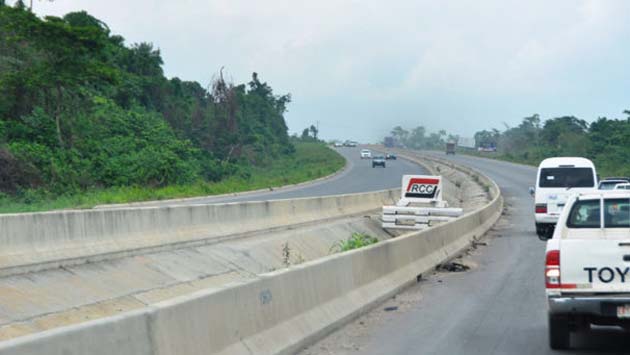
•Identifies inadequate infrastructure as major challenge to productivity
A national survey by SBM Intelligence has picked Lagos-Ibadan Highway as the most economically viable road in the country.
Lagos-Onitsha and Kano-Maiduguri roads come second and third respectively, according to the survey conducted by SBM Intelligence.
It also stated that the deteriorating road infrastructure poses significant economic challenges, with billions lost yearly due to reduced productivity and resources.
SBM Intelligence survey highlights the widespread dissatisfaction among commercial drivers with the deplorable state of the country’s roads.
The survey, which engaged 245 drivers across eight major commercial hubs, identified potholes (32.9 per cent) and security concerns (25.6 per cent) as major issues affecting commuting.
Many drivers reported that poor infrastructure extends travel times beyond projection, while evening hours see the heaviest congestion on interstate highways.
The report emphasized that inadequate road infrastructure has created a ripple effect of inefficiencies, increased costs and strained operator-passenger relationships.
Addressing these issues must become a national priority, the report said.
“To tackle the challenges facing Nigeria’s road transport sector, concerted efforts are necessary across multiple stakeholders. The government should allocate more resources to rehabilitate and maintain critical routes, ensuring transparency and accountability in project execution.
“Leveraging technology to monitor road conditions can help identify priority areas for repair, ensuring effective resource utilisation. Strengthening security along major routes through increased patrols, surveillance technology and community engagement is vital to restoring confidence in the transport sector,” the report said.
Transport operators must also adapt by optimising their operations, investing in regular vehicle maintenance and adopting fuel-efficient practices, it stated.
It added: “Forming associations to advocate collectively for improved road infrastructure and security can amplify their voices in policy discussions.”
It noted that improved road conditions would significantly reduce delays, lower operational costs, extend vehicle lifespans and stabilise pricing structures while creating a more efficient and sustainable transport system.
“Prioritising investments in road infrastructure is critical to alleviating the burdens transport operators and their customers face. A collaborative approach involving government agencies, private stakeholders and communities is essential to achieve a sustainable solution that supports economic growth and improves all Nigerians’ quality of life,” it stated.






